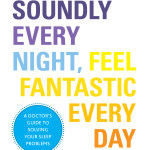Why Boomers Can’t Sleep: Sleep Problems

Why Boomers Can’t Sleep
Why Boomers Can’t Sleep
Which group with sleep related problems do I see most often? Baby boomers–those of us born between 1946 and 1964 who are now between the ages of 50 and 68.
One of the most common problems is insomnia. Boomers frequently describe troubles related to an inability to fall asleep, stay asleep, and a feeling of non-refreshing sleep. Their failure to fall asleep is due to a variety of problems. Many of us grew up on television and now we seem to need our old friend in the bedroom to soothe us to sleep. This, plus taking other electronics to bed such as cell phones, iPads, and laptops, inhibits the production of the sleep hormone melatonin, thus making it difficult or impossible to fall asleep.
Many of us awaken frequently throughout the night. This may be due to bladder issues, chronic pain, or persistent menopausal hot flashes. However, in many it is due to sleep apnea. As we age, sleep apnea becomes more common, especially in post-menopausal women. In the case of the boomers, there is also obesity, which predisposes one to the disorder. In fact, a recent survey found 72% of boomers overweight or obese. It is any wonder that we are seeing so much sleep apnea?
Another issue is sleep architecture. Boomers need seven to nine hours of sleep. However, even among those who do get it, there is a change in the depth of sleep. As we age, we lose a higher proportion of deep slow wave sleep. By the age of 60, what had been a 20% share of this restorative sleep when younger may drop to less than 5%. Thus, we are prone to lighter stages of sleep from which we are more easily awakened. In addition, this loss of deep sleep may impair our ability to consolidate new facts, such as recent names or experiences into our memories.
Other boomers are facing unexpected financial and social burdens such as paying for that condo, spousal loss, or raising a grandchild. This can lead to anxiety and depression. Insomnia and non-restorative sleep frequently develop with mood and anxiety disorders. To be relieved, the associated sleep disorder must be addressed.
Finally, many boomers are on medications that make sleep more difficult. Examples being many antidepressants, beta-blockers commonly used for blood pressure, stimulants used to treat adult ADHD, and over the counter decongestants. In addition, commonly overlooked restless legs syndrome is another cause of poor quality sleep.
What is the take home message for boomers? You need to take control of your sleep. In the instance of television and electronics, get them out of the bedroom. Make your bedroom an environment conducive to sleep and sexual activity only. It is not the place for work or worry. If you have difficulty with staying asleep or feel like you never get enough sleep, do not ignore it. Discuss the problem with your health care provider, and where appropriate seek referral to a sleep specialist. Keep in mind that the majority of cases are reversible.
Robert S. Rosenberg, DO, FCCP, is the medical director of the Sleep Disorders Center of Prescott Valley, Arizona and sleep medicine consultant for Mountain Heart Health Services in Flagstaff, Arizona. Dr. Rosenberg is board certified in sleep medicine, pulmonary medicine, and internal medicine. He is also the author of the new book, Sleep Soundly Every Night, Feel Fantastic Every Day: A Doctor’s Guide to Solving Your Sleep Problems (Demos Health, July 23, 2014).
Category: Blog



































